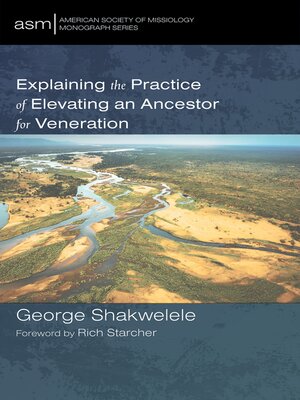Explaining the Practice of Elevating an Ancestor for Veneration
ebook ∣ American Society of Missiology Monograph Series
By George Shakwelele

Sign up to save your library
With an OverDrive account, you can save your favorite libraries for at-a-glance information about availability. Find out more about OverDrive accounts.
Find this title in Libby, the library reading app by OverDrive.



Search for a digital library with this title
Title found at these libraries:
| Loading... |
The Bisa people of Nabwalya, Zambia love their culture and gladly celebrate all their traditional festivals. This book presents exciting research into Kusefya pa ngena, rituals through which the Bisa elect ancestors for veneration. The Bisa speak freely of how their belief in ancestor veneration does not conflict with their worship of God. For them, the two work hand in hand. Traditional practices are considered vital to the community because they enhance life, reinforce cultural values, and explain life events. Those questioned said ancestor veneration should continue because it benefits current and future generations. For example, their most celebrated ancestor, Kabuswe Yombwe, when petitioned, provides rain and a good harvest for the community. People affirmed that rain fell each time they petitioned Kabuswe. One woman, who is married to an elder in a Pentecostal church, vowed not to give up ancestor veneration, to which she attributed the healing of her son and daughter. She pledged her allegiance to both Jesus Christ and to her family's ancestors. In another story, an ancestor appears in a dream to an expectant woman demanding that her child be given a feminine name. The mother obeys to avoid the child being born with a sickness . . .






